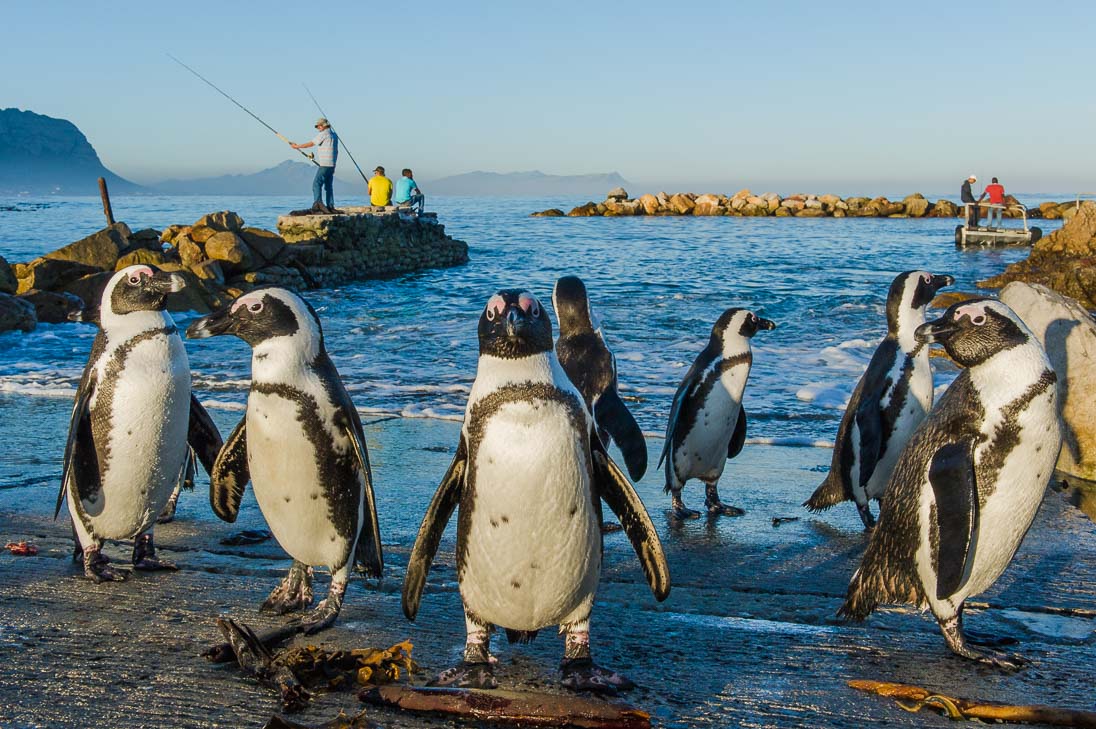Betty’s bay MPA
"ABALONE REFUGE"
Betty’s Bay, Western Cape
The rich intertidal life and productive kelp forests offer an incredible refuge for over-exploited abalone and west coast rock lobster, a host of different fish and the only growing colony of endangered African penguins.
This 21 km2 MPA is a penguin paradise, with incredible kelp forests. Situated on the Cape South Coast between Stony Point and Jocks Bay and extending 3.6km out to sea, the 3km long Betty’s Bay MPA was first proclaimed in 1990, then re-proclaimed and renamed in 1998. The MPA forms part of the core zone of the United Nations Educational and Scientific Organisation (UNESCO) designated Kogelberg Biosphere Reserve. Established to protect declining linefish stocks and counter the over-exploitation of South Africa’s abalone, the area is productive and biologically diverse, supporting substantial fish, invertebrate and algal species. The MPA has a variety of habitats including rocky headlands, wave-cut platforms, high-energy sandy beaches, kelp forests, estuaries, sub-tidal reefs and pelagic habitats. Diversity in the intertidal zone is particularly rich. Kelp forests are characteristic of this MPA and they provide a rich source of food and shelter for a variety of animals including kelp limpets, alikreukel, abalone and West coast rock lobster. Fish species found in the Betty’s Bay MPA include silver kob, shad/elf, geelbek, hottentot, roman, galjoen, white steenbras, spotted gully and smooth hound sharks. Stony Point is one of only two mainland breeding sites for the endangered African penguin. In the early 1980s a small group of penguins settled in the area and started breeding. Since then, the colony has steadily grown into one of the most important mainland breeding colonies for the species, and an increasingly popular tourist attraction. The increased number of tourists to the area has provided opportunities for local communities to benefit directly from tourism. The accessibility of the area means that the MPA is an important site for environmental education, where children can learn more about marine life and the need for its care. The MPA is managed by Cape Nature and is zoned to allow shore fishing but no boat-based fishing or spearfishing is allowed in the MPA.
BENEFITS
protection of overexploited reef fish
protection of nesting endangered African penguins
important site for eco-tourism and environmental education








